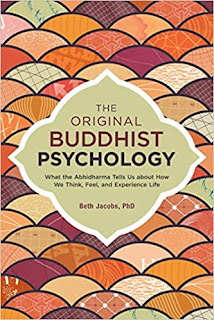 |
| But I can't forgive, Buddha, I just can't! Do you think I should pay Vishen $299 to be able to? |
.
Did the Buddha teach forgiveness?
My Catholic mother once asked me, "Does Buddha recommended forgiveness the way Jesus Christ [Saint Issa] did?
I was stymied. I couldn't think of that as an emphasis or exact teaching, but I assured her the Dharma, as the Noble Eightfold Path, was suffused with such ideas.
I asked a monk, and he immediately said, "Yes." I said, "What do we call it, what's the word for it?"
"Khanti," he answered, "is the Pali word, long suffering patience and forbearance," pointing out that it is one of the Ten Perfections (pāramīs).
Those ten are what made the wandering ascetic Siddhartha the Buddha, the "Awakened One."
There's also a popular Buddhist saying in this regard:
"Forbearance is the highest virtue."
 |
| Ven. Khantipalo (Laurence Mills) had khanti |
"Oh, I don't know, Mom, given that the Buddha was born and taught at least 500 years before God ever even thought of begetting Himself as Son." That shut that line of inquiry down. I followed up, "Mom, do you suppose God made the Buddha?"
"Didn't He make everything and everyone -- the Devil, evil, Mohammed, rebellious Jews, and atheists? And didn't you once say, 'God don't make no junk'?"
"That's just a saying to make kids feel better about themselves."
"Sure it is, Mom, sure it is."
It is the advice of three of India's Dharmic religions to be like the sandalwood tree, who when felled by the lumberjack's axe does what to that lumberjack and that axe? It sprinkles them with perfume.
 |
| I forgive you. - Me, too. - I feel much better. |
It's mindboggling. Even one tiny good deed (free of greed, hatred/fear, delusion) redounds with many, many results. Sadly, the same can be said about tiny bad deeds (those motivated by greed, aversion, or delusion).
 |
| Abhidharma is Buddhist psychology (Zen). |
One action, one deed, one karma, however small -- even just verbal or mental -- lays down a track in the mind. The tracks are called cittas, the "mind-moments," producing it, the impulsions or javanas, the cittas and cetasikas (or moments and mental concomitants).
 |
| Who Ordered This Truckload of Dung? (Ajahn Brahm) The sh* in our lives, should we complain or fertilize? |
 |
| Judge not. Karma (our own deeds) will judge. |
This is why the Buddha over and over again made much of "karma," so much so that in his day he was never called a "Buddhist." He was called a Karmavadin, "a teacher of the efficacy of deeds."
What deeds did he commend, advise, and praise? Those actions free of traces of desire, aversion, and delusion (lobha, dosa, moha).
 |
| Welcoming the Unwelcome: Wholehearted Living in a Brokenhearted World (by Pema Chödrön, as read by Claire Foy) |
This is true even for bad people, who will enjoy good or mixed results when those deeds ripen. It is said that even success in crime is due to skillful karma of the past, not present unskillful karma like the crimes being committed. So even if one keeps doing bad, one is wise to do much good as well.
 |
| To forgive others is to be good to yourself. |
Why? Imagine "bad" is like harsh salt in a container of fresh water. How will we ever get it all out? Even if most settles, there's still much in suspension. It will be hard to remove or swallow. BUT if we add more clean water, it will dilute that saltiness and make it bearable. Just so, a little bad and much good will be sufferable, bearable, maybe even not so unpleasant.
"To do all good (kusala),
to refrain from all bad (akusala),
this is the advice of all buddhas."
- Vishen, MindValley.com; Dhr. Seven, Ashley Wells, Ananda (Dharma Buddhist Meditation) collecting fake and real Buddha quotes, all of them good if not exact quotes




























































































































































































































































No comments:
Post a Comment